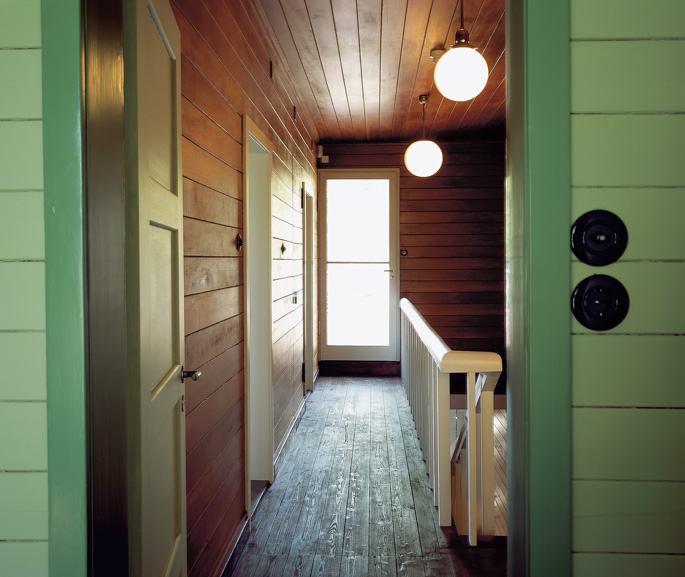On December 6, 1932 the Einsteins were preparing to leave Caputh for Pasadena, where Einstein had a winter semester teaching appointment at Caltech. As he was locking up the house, Einstein is supposed to have told Elsa to take a last look, because she would never see it again. The anecdote, which originally appeared in an early Einstein biography, is not entirely supported by the facts. Only two weeks before, Einstein had spent a considerable amount on the purchase of a neighboring piece of property with a garden house; and shortly after Hitler seized power in January of 1933, Einstein wrote to the Prussian Academy to discuss his salary for the upcoming year. The story has probably been told so often because it seems to befit a man known for his political prescience. Einstein had been worried about developments in German politics for some time. In 1921 he told a friend that he had only ten years left in the country; by 1931 Nazi success in parliamentary elections and increasing anti-Semitic sentiment in Berlin led him to draft a letter of resignation from the Academy. He never sent the letter, but he would remain deeply torn for the next two years. The idealist in him wanted to hold onto his idyll and everything it symbolized; the realist in him was nothing if not clear-minded about the imminent Nazi threat and the impossibility of remaining in Germany. It was a dilemma that not only Einstein experienced. Lion Feuchtwanger and Bertolt Brecht both bought houses in Berlin shortly before 1933, and both lost them shortly afterward.
When Hindenburg suspended political and civil rights after the Reichstag burning on February 28, however, Einstein overcame his ambivalence. A country without civil liberty, tolerance, and equality of all its citizens before the law was not a place he wanted to live. If Einstein needed any more convincing, he received it in New York, the day he was to return to Europe after his winter appointment in the United States. The ship radio announced that Nazis had raided the Caputh house in search of a cache of weapons, allegedly hidden there by communist agitators. The report later turned out to be untrue, but Einstein´s initial response is worth repeating: „My summer house has often in the past been honored by the presence of guests. They were always welcome. No one had any reason to break in.“
Upon arrival in Antwerp on March 28, Einstein went immediately to the consulate to renounce his German citizenship. In his letter of resignation to the Prussian Academy of Sciences, Einstein expressed his gratitude toward the institution and his affection for its members, but felt that dependence on the Prussian government under the present circumstances to be intolerable. Unfortunately, the Academy didn´t respond with the same reserve. On April 1, the first boycott of Jews day, it issued a statement declaring that there was no reason to regret Einstein´s resignation due to his atrocity propaganda abroad Einstein wrote Planck in protest. He had only advocated diplomatic pressure against Hitler´s government; he specifically warned against general anti-German agitation. But Planck was beyond persuasion. He had already confused cause and effect a few weeks earlier by telling Einstein that his outspokenness in America was making it worse for Jews in Germany. Later that May, as Nazis and their sympathizers were preparing to burn 20,000 books in Berlin, Max Planck was recorded in the Academies minutes as saying that through his political behavior [Einstein] himself rendered his continued membership in the Academy impossible. There were few things that surprised Einstein more about Hitler´s rise to power than the way the majority of German academics responded to it. In August, Einstein told a colleague that he probably wouldn´t see his country of birth again.
